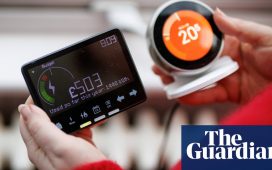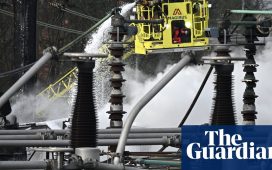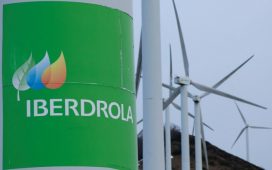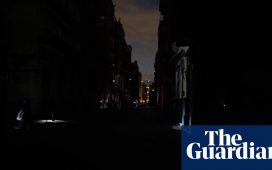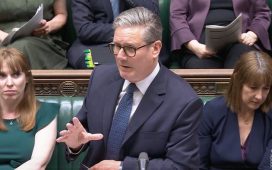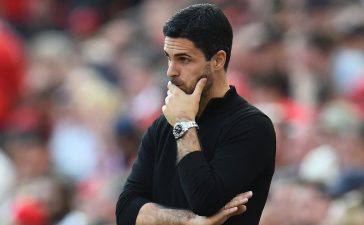Stay informed with free updates
Simply sign up to the UK energy myFT Digest — delivered directly to your inbox.
EDF’s chief executive said he was confident of persuading the British government to help finance two flagship nuclear reactor projects in the UK, as the French group reported a €12.9bn writedown on its delayed Hinkley Point C plant.
Luc Rémont on Friday confirmed that the company was pressing UK ministers to intervene on funding for Hinkley, where EDF is footing the bill for spiralling costs, as it also pursues talks on the Sizewell C plant, for which Britain and EDF are seeking new investors.
EDF said it had taken an almost €13bn hit in relation to Hinkley Point C, after revealing in January that the start date had been pushed back until 2029 at the earliest. Under the worst-case scenario Hinkley could now cost £47.9bn to complete, EDF said on Friday, compared with an initial £18bn estimate in 2016.
Rémont described Hinkley as a “major [financial] weight” for the state-owned group, although the company generated a profit last year in spite of the writedown, on the back of higher energy prices. He added that the project ultimately remained profitable too.
EDF, Europe’s main nuclear power operator with a fleet of reactors in France, is the majority shareholder in Hinkley Point C. The company is now fully shouldering the bill after its Chinese partner CGN stopped making payments to cover cost overruns after the British government took steps to push it out of the nuclear sector following a deterioration in relations with Beijing.
“We’re confident we can find a pathway with British authorities on Hinkley Point C and Sizewell,” Rémont told a news conference. He declined to say what shape any financing aid could take or when talks could conclude, but stressed that EDF would not increase its stake beyond 20 per cent in £20bn Sizewell C as part of any quid pro quo.
People close to the discussions have told the Financial Times that the French government is pressing Britain to support EDF on Hinkley Point, including by potentially providing loan guarantees to lower the project’s financing costs.
Earlier this week French finance minister Bruno Le Maire called for a “fair sharing of the costs”.
The UK’s Department for Energy Security and Net Zero, which is responsible for the project, said: “Hinkley Point C is not a government project, so any additional costs or schedule overruns are the responsibility of EDF and its partners.” It added: “We have a strong relationship with France in civil nuclear and we continue to engage with international allies on a number of issues.”
The UK government has until now argued that the financing is a problem for shareholders in Hinkley Point C alone. It is opposed to an outright injection of taxpayer funds. In January it said any additional costs were “the responsibility of EDF and its partners and in no way will fall on taxpayers”.
However, the two nuclear projects are a cornerstone of Britain’s energy security strategy and efforts to decarbonise its electricity grid in the coming decades. Hinkley Point C alone is supposed to supply power for some 6mn homes.
The project had initially been programmed for completion in 2025, but issues with installing some parts, labour shortages and delays during the Covid-19 pandemic have tripped it up.
In turn, EDF has seen Hinkley Point C as a model for the technology it wants to roll out across France and export to other countries. The project is set to bring in revenues once it is up and running.
EDF reported on Friday that it had bounced back last year from huge losses in 2022, posting annual profits of €10bn as electricity prices rose and the effect of outages at its French reactors faded.
It said its net investments rose by €2.7bn to €19.1bn in 2023, including because of the higher Hinkley Point C financing it is having to face.

